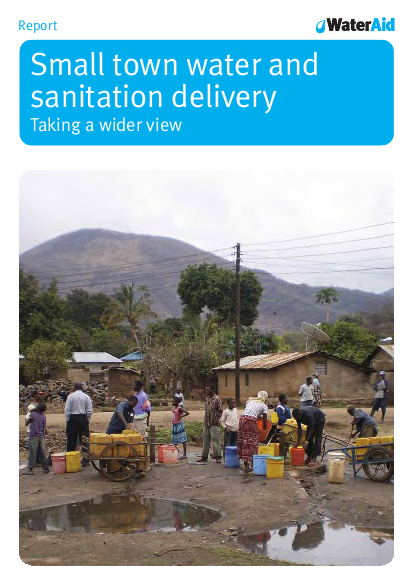Taking a Wider View

This report synthesises the initial analysis of factors that influence water and sanitation service delivery in small towns.
Key findings of this initial research include: • Whilst certain generic elements apply to all small towns in the same country, such as election rules, national regulations, financing criteria, laws and decentralisation, each small town has its own particularities. A certain level of tailoring to specific contexts may be needed. • This tailoring of approaches should be based on wider analysis that reviews the economies, demographics and politics of small towns in more detail. Otherwise the result has tended to be over-designed construction projects that cause towns to suffer financially or in other ways once the design teams and consultants have left. • Small towns are inextricably connected and vulnerable to outside influences, both to the surrounding rural areas and the nearby larger urban centres, that impact on their economies, demographics and even decision-making. • Small towns do not yet fully enjoy the economies of scale that allow them to cross-subsidise from group to group or from service to service. • Small towns do not have the capacity to deal with shocks such as mass in-migration or other sudden changes.
Resource collections
- Evaluating humanitarian action
- Monitoring and Evaluation (M&E)
- Monitoring of humanitarian action
- UN Habitat - Urban Response Collection
- Urban Response - Urban Crisis Preparedness and Risk Reduction
- Urban Response Collection - Community Engagement and Social Cohesion
- Urban Response Collection - Economic Recovery
- Urban Response Collection - Environment and Climate Change
- Urban Response Collection - Housing, Land and Property
- Urban Response Collection - Urban Crisis Response, Recovery and Reconstruction
- Urban Response Collection - Urban Resilience
- Use of evaluation evidence